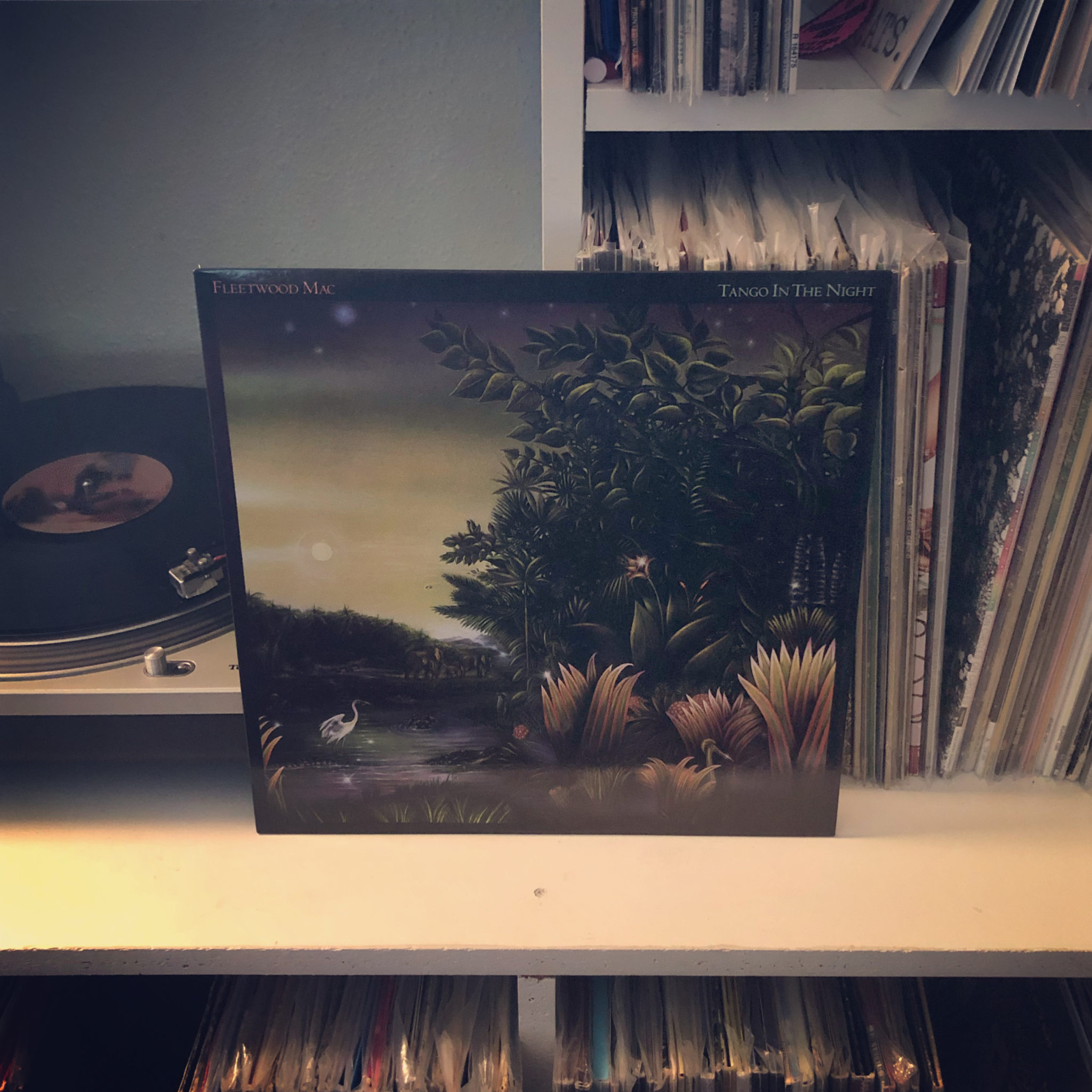 After the manic scattershot of Tusk, Fleetwood Mac pulled hard to the center with 1982’s Mirage, a pleasant enough record that I remember being a bit dull (though I’m overdue a relisten).
After the manic scattershot of Tusk, Fleetwood Mac pulled hard to the center with 1982’s Mirage, a pleasant enough record that I remember being a bit dull (though I’m overdue a relisten).
After a five year break, they returned with Tango In the Night, an album that combines their winning popcraft with Lindsey Buckingham’s more esoteric tendencies in a way that feels like they’re actually in concert with eachother.
Like most other rock and roll acts in the eighties, this album finds the Mac introducing a fair amount of synthesizers and electronics into their pallette—and not in a Tusk way. I’m talking about absolute classics like “Seven Wonders,” “Everywhere,” and “Little Lies,” which are all as catchy as anything on Rumours and feature all the new wave elements Buckingham was obsessed with on Tusk without cutting at the heart of what them Fleetwood Mac.
But singles aside, the deep cuts here are fantastic. The title track is dark and aggressive, carrying the same frantic energy as “Tusk” the song. In fact, it sounds even bigger than that song, even without the marching band augmentation. And that guitar solo is (chef’s kiss). “Family Man” is an electronic beat fest that features warped vocals and heavy use of studio trickery, yet it’s not jarring. “Isn’t it Midnight” is a frantic rocker featuring riffs that wouldn’t feel out of place on a Billy Squier record.
Throughout the record, the titular rhythm section of Mick Fleetwood and John McVie keeps things as tight as ever. At times, it’s impossible to recognize whether the drums and bass are playing on a sequencer or by human musicians.
Yet as even and cohesive as Tango in the Night is, the band was incredibly fractured behind the scenes. After Mirage, every member of Fleetwood Mac but John McVie released a solo record. Tango in the Night even found its genesis as a Lindsey Buckingham solo record before Christine McVie brought her bandmates along to provide the instrumentation for an Elvis cover. Stevie Nicks wasn’t particularly keen on the whole thing, spending only two weeks with them in the eighteen month (!) recording process. “Seven Wonders” even shares a songwriting credit with Sandy Stewart, one of her songwriting partners for her solo material.
But for as united a front as Fleetwood Mac sounds on this record, this fragmentation would prove to be the more powerful force. Before they could even embark on a supporting tour, Lindsey Buckingham announced his departure from the band, putting an end to one of the greatest lineups in music history. The band would continue with two new members taking his place, but they would never be as good as they were with Buckingham, Nicks, and McVie at the helm.